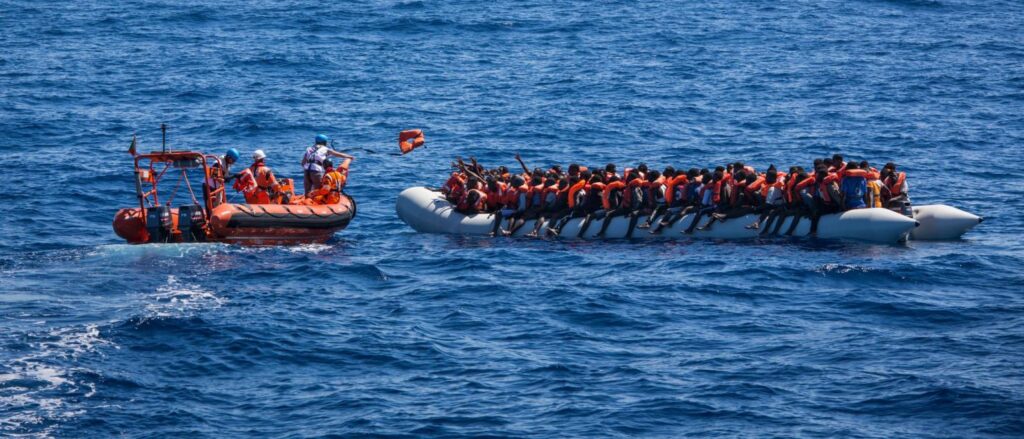
We believe that the principles of impartiality and neutrality are not synonymous with silence. When Doctors Without Borders/Médecins Sans Frontières (MSF) teams witness extreme acts of violence against individuals or groups, or when access to lifesaving medical care is hindered, we may speak out publicly. Our decision to do so is always guided by our mission to alleviate suffering, protect life and health, and to restore respect for human beings and their fundamental human rights.
A history of témoignage & bearing witness
The word témoignage comes from the French verb temoigner, which literally translates as ‘to witness’. MSF practices témoignage by acting as a witness and speaking out—whether in private or public—about the plight of the people we treat.
When MSF was first created in 1971, its original members had returned from working for the Red Cross during the Biafran war in Nigeria. The Red Cross pursues a policy known as “silent diplomacy”—very rarely speaking out, no matter the scale of atrocities, for fear that this will offend parties in a conflict which could limit their access and ability to do their humanitarian work.
That experience—of witnessing hundreds of thousands of people die due to a deliberate policy undertaken by the Nigerian government and remaining silent—was part of what motivated a group of young French doctors and journalists to start MSF. They were frustrated and outraged by the inability of the Red Cross to publicly attest to what had happened.
Médecins Sans Frontières was founded to bring medical professionals together to not only provide aid in war zones, but to talk about what they saw. In spite of the risks, this group refused to watch in silence. They believed that silence could kill, making those that watched complicit in the atrocities. They hoped that by bringing abuses to light, they could help bring them to an end.
Acting and speaking, treating and witnessing were acts fundamental to the creation of MSF. Today, they are still at the core of what we do.
Bearing witness: case studies
Sectarian strife in Central African Republic (2013–present)
In early 2014, MSF increased its operational activities in Central African Republic (CAR) and surrounding countries to provide care to those affected by escalating violence—both within and outside of the country. Despite declarations by the French government to the contrary, MSF views the crisis as ongoing and has continued its activities. MSF is also speaking out against the failure of the international community to respond to the humanitarian crisis that is devastating the small Central African country.
Conflict in Syria (2011–present)
After nearly five years, 150,000 people killed, and nine million people displaced, the war in Syria continues to rage, with little hope in sight for those still trapped under the government’s barrel bombs or those languishing in refugee camps. MSF continues to provide medical treatment to those in need, both inside Syria and among the refugee populations in surrounding countries. In spite of large-scale efforts to provide aid to the Syrian people, warring parties have obstructed the delivery of much-needed humanitarian assistance. As part of our work in Syria, MSF speaks out against this blatant disregard for international law and human decency.
The Kosovo War (1998–1999)
In March 1998, the forces of the then-Federal Republic of Yugoslavia launched an assault on ethnic Albanians in Kosovo, sparking a conflict that would take the lives of thousands, displace millions, and only end with intervention by NATO. MSF—which had been operating in Kosovo for years—immediately began providing emergency assistance to those fleeing the atrocities and aerial bombardments. As the killing and destruction continued, and high-level international mediation stalled, MSF spoke out about the deteriorating security and humanitarian conditions for Kosovar Albanian civilians.
Genocide in Rwanda (1994)
MSF operated in Rwanda from 1991 to 2007. When the country began sliding toward violent upheaval, MSF volunteers bore witness to what would become recognized as one of the most tragic episodes of genocide in the late-twentieth century. Despite their best efforts, MSF staff found that their mission and principles were continuously violated by the genocide’s perpetrators. The grim reality of the situation led them to take an unprecedented step among humanitarian organizations: to publicly demand international armed intervention.
Ethiopia: drought and forced displacement (1984–1986)
MSF began working in Ethiopia in 1984, as famine struck the north of the country, devastating millions of lives. The famine—the combined result of environmental factors, war, and forced agricultural collectivization—drew unprecedented amounts of aid from the international community.
The Ethiopian government used some of this funding to forcefully relocate millions of people, causing up to 100,000 more deaths. In 1985, after witnessing the government’s mistreatment of displaced persons, facilitated by international humanitarian aid, MSF spoke out against these cruelties. A few days later, MSF teams were expelled from the country.
Bearing witness
